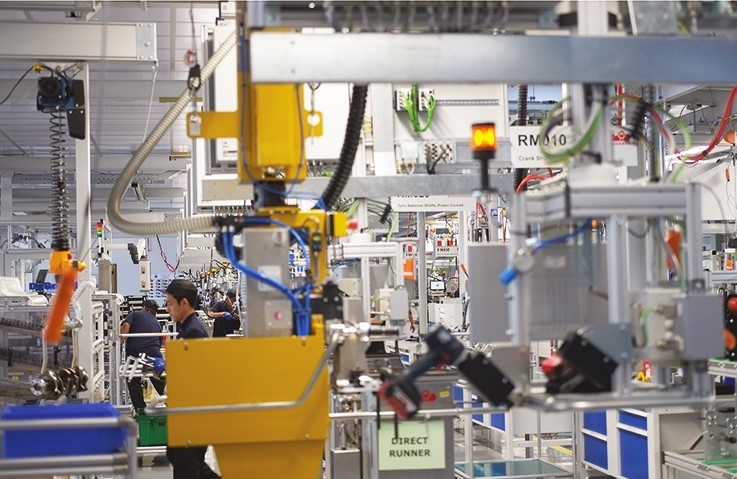
Small and medium enterprises (SMEs) are at risk of losing about RM250 million per day if those in the services and manufacturing sectors have to shut down to reduce Covid-19 risk of infection.
SME Association of Malaysia national VP Chin Chee Seong told The Malaysian Reserve (TMR) it is impossible to shut down the operations of essential players that are responsible for ensuring the continuity of supply chains.
“If SMEs involved in the manufacturing and services sectors are forced to close down, they will record losses amounting to RM250 million per day.
“The government should look into all of the SOPs in place rather than just implementing full lockdown to sustain the economy,” he said.
The rise in workplace clusters have caused the public to point fingers at manufacturers that were given approvals from the Ministry of International Trade and Industries to continue their operations at 60% capacity during the full lockdown.
Besides the government’s efforts to manage the spread of infections nationwide, Chin said the sectors that are allowed to operate should also adhere to the SOPs in place to ensure their livelihoods would not be jeopardised.
He noted that some of the bigger SMEs may face issues in identifying the workers who are deemed risky to the workplace, mainly due to the lack of self-governance as a result of the reduced number of workers at the workplace.
“Factories would have chosen to allow those in the production lines to come to work, but others like administration staff and even guards who are not directly involved in the operations are not required to come to the sites. This leads to a lack of monitoring and control at the sites.
“However, not enough manpower is not a good reason for them to not have better management control. They should always take extra precautions and follow the SOPs regardless.”
SMEs Association (Samenta) chairman Datuk William Ng noted that even though manufacturers are allowed to operate during the Full Movement Control Order (FMCO), their margins have gone down due to the rapid rise in material and logistics costs. The index cases identified at manufacturing sites mainly derived from recent festivities, said Ng, who urged SMEs to be aware of the SOPs as they are allowed to operate.
“Every day they remain open, it may or may not bring in any profit at all — but it is to ensure that they remain in the supply chain of customers and vendors. Once you are out, it may take years to get back in.
“As we work hand-in-hand with all segments of society to contain the spread of the virus, we should allow essential businesses to operate and open up more sectors as soon as possible,” Ng told TMR.
He said the industry will lose up to 300,000 businesses if the current FMCO is prolonged.
Furthermore, Ng said two out of three SMEs do not have hope for recovery in 2021 based on a survey conducted by Samenta.
Only 16% of the respondents expect their businesses to recover in 2023.
“However, after over a year of disrupted business, SMEs are no longer in a position to survive on their own. Indeed, 30% of SMEs would have run out of cash during this FMCO and if the FMCO is extended, many of these would simply close down,” he said in a press release in conjunction with World SME Day yesterday.
“We are hopeful that the government will continue to place more emphasis on capability and capacity building for our SMEs (as it has been through SME Corp), rather than short-term handouts (which is crucial during this pandemic, but should wane off once the pandemic has ended).”
Source: https://themalaysianreserve.com/2021/06/28/manufacturers-cannot-afford-to-stop-operations/

